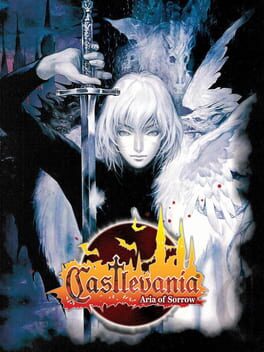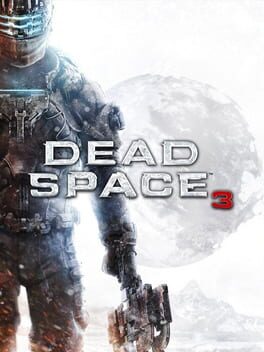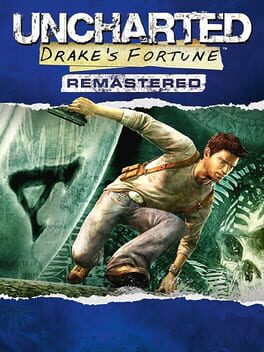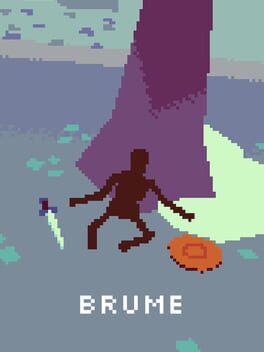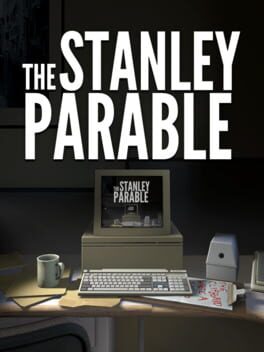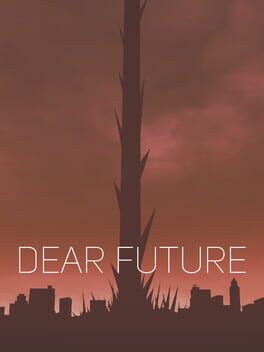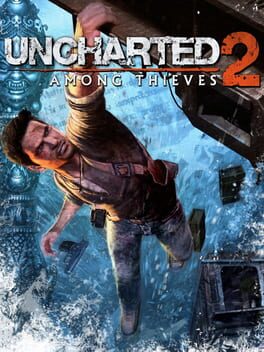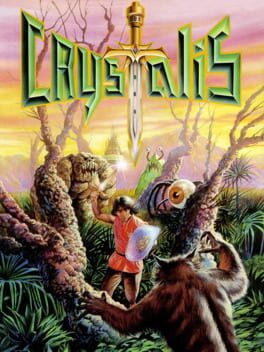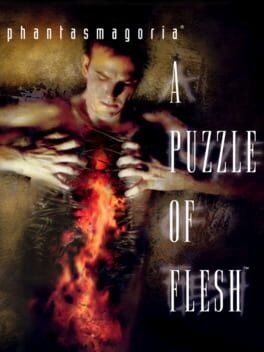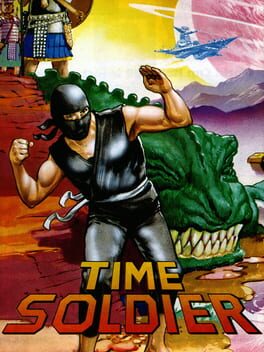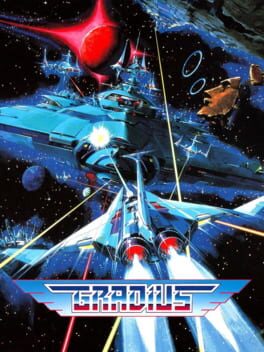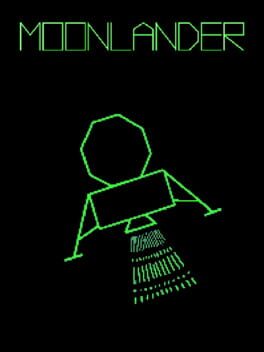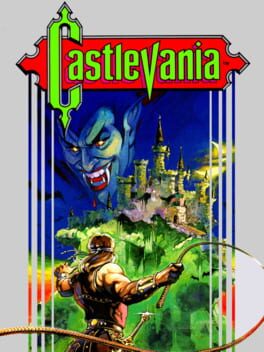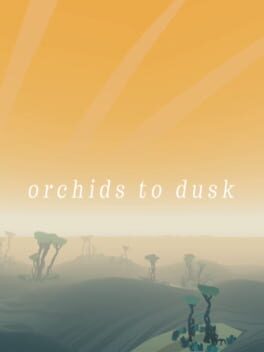While Harmony of Dissonance holds a special place for me because it refined the SotN formula so well, I'll concede that Aria of Sorrow is probably the best put-together title of Igarashi's Advance trilogy. Basically every element that was already in previous titles has been systematized to its fullest, with an equipment system that incentivizes repetition and exploration while at the same time offering you a map that is incredibly easy to navigate.
If anything, this is the main thing that, to me, makes AoS less attractive for me. It all feels so curated, so carefully selected, that it doesn't allow for breath in the same way that the more chaotic HoD allowed. As for the story itself, I think it works fine providing closure to the whole Belmont/Dracula arc, but you can't escape the fact that this is set after a mysterious apocalyptic event that has never been told in any form as of today. That doesn't make this title less interesting, but it does make it incomplete somewhat.
If anything, this is the main thing that, to me, makes AoS less attractive for me. It all feels so curated, so carefully selected, that it doesn't allow for breath in the same way that the more chaotic HoD allowed. As for the story itself, I think it works fine providing closure to the whole Belmont/Dracula arc, but you can't escape the fact that this is set after a mysterious apocalyptic event that has never been told in any form as of today. That doesn't make this title less interesting, but it does make it incomplete somewhat.
2013
Muy entristecido por lo que le hicieron a esta obra. Da pena especialmente porque las partes que están bien hechas (las ruinas del final, las secuencias del principio o los paseos por la nieve, incluso el cooperativo asimétrico) se juegan, al menos, igual que bien que en los juegos anteriores. Pero todo lo demás (incluida la historia) está mal.
--------------------
Very saddened by what they did with this. It's especially upsetting because the parts that work (the ruins at the end, the sequences at the beginning or the strolls around the snow. Heck, even the asymmetrical coop) play as well as they did in previous titles. But everything else (including the story) is bad.
--------------------
Very saddened by what they did with this. It's especially upsetting because the parts that work (the ruins at the end, the sequences at the beginning or the strolls around the snow. Heck, even the asymmetrical coop) play as well as they did in previous titles. But everything else (including the story) is bad.
La gallina de los huevos de oro de Naughty Dog, la obra que marcó un antes y un después en la historia del triple A respetable (y la que, en muchos aspectos, estableció el estándar de cómo juzgar el videojuego inglés "de prestigio") se juega hoy en día como un Jak & Daxter anímico y pasado por cuatro cosillas de los Tomb Raider. En numerosos aspectos, la cultura y experiencia previa del estudio permean la dirección de esta aventura de poca monta, desde las secuencias de acción desenfocadas hasta la extraña actitud maniática de los protagonistas cuando actúan (no ayuda que, con el remasterizado, todo se mueve más fluido y exagerado). Donde más se nota, obviamente, es en las secuencias más arcade, que parecen sacadas literalmente de las carreras y escenas de tiro de Jak II. Más allá de esos elementos, el juego incorpora elementos superficiales de muchas otras franquicias; un sistema de cobertura básico y poco intuitivo, una sección de saltos y escaladas extremadamente simple, e incluso algún QTE escondido. Cuando el juego te presenta estos retos, el conflicto con le jugadore se hace especialmente obvio, y morir porque escogiste pararte a ver algo en vez de seguir el guión prefijado ocurre demasiado a menudo. Por otra parte, las secciones con puzzles prometen cierta ruptura de la monotonía, pero su nula profundidad los acaba haciendo inanes como auténticos retos y los acerca más a los momentos de alivio a las que las películas de aventuras a las que se quiere parecer este juego recurren tanto.
En muchos aspectos, Uncharted se entiende menos como un juego que como un modelo de laboratorio para construir La Experiencia Lúdica Cinemática, y al igual que muchos otros modelos, eso le hace sentirse inerte, cuando no hostil, a los actos del jugadore. Para cualquiera que proviniese de la era de complejidad adquirida durante los plataformas de PS2, esto tenía que sentirse por fuerza como una vuelta atrás. Algo similar, dicho sea de paso, a lo que pasaron los plataformas durante el salto de los 8 a los 16 bits. Tal vez era necesario que esto existiera para que lo próximo fuera mejor, pero eso no lo hace un buen juego.
-------------------
Naughty Dog's golden goose, the work that marked a before and after in respectable triple-A production and set the standard for "prestige" video games, now plays like a minimalist Jak & Daxter with Tomb Raider tidbits. In many ways, the studio's previous culture and experience permeate this slapdash adventure, from the unfocused action sequences to the oddly manic attitude of the protagonists when they act (it probably doesn't help that the Remastered Edition makes everything look smoothier). You can tell this better in the arcadey sequences, which seem lifted straight up of the racing and shooting of Jak II. Beyond those elements, the game incorporates superficial elements from many other franchises; a basic and unintuitive cover system, extremely simple jumping and climbing sections, and some hidden QTE. When the game challenges you with these, the conflict with the player becomes apparent. Dying because you chose to stop and look at something instead of following the pre-set script happens all too often. On the other hand, the puzzle sections promise some break from the monotony, but their lack of depth renders them inane and brings them closer to the relief sequences that the adventure film this game wants to be would have.
In many ways, Uncharted works less as a game and more as a blueprint of The Cinematic Gaming Experience, and like many other blueprints, that makes it feel inert, if not hostile, to the player. For anyone coming from the complexity reached on PS2 platformers, this was bound to feel like a setback. Something similar happened with platformers during the 8-bit-to-16-bit as well. Maybe this needed to exist in order for the next thing to be better, but that doesn't make it a good game.
En muchos aspectos, Uncharted se entiende menos como un juego que como un modelo de laboratorio para construir La Experiencia Lúdica Cinemática, y al igual que muchos otros modelos, eso le hace sentirse inerte, cuando no hostil, a los actos del jugadore. Para cualquiera que proviniese de la era de complejidad adquirida durante los plataformas de PS2, esto tenía que sentirse por fuerza como una vuelta atrás. Algo similar, dicho sea de paso, a lo que pasaron los plataformas durante el salto de los 8 a los 16 bits. Tal vez era necesario que esto existiera para que lo próximo fuera mejor, pero eso no lo hace un buen juego.
-------------------
Naughty Dog's golden goose, the work that marked a before and after in respectable triple-A production and set the standard for "prestige" video games, now plays like a minimalist Jak & Daxter with Tomb Raider tidbits. In many ways, the studio's previous culture and experience permeate this slapdash adventure, from the unfocused action sequences to the oddly manic attitude of the protagonists when they act (it probably doesn't help that the Remastered Edition makes everything look smoothier). You can tell this better in the arcadey sequences, which seem lifted straight up of the racing and shooting of Jak II. Beyond those elements, the game incorporates superficial elements from many other franchises; a basic and unintuitive cover system, extremely simple jumping and climbing sections, and some hidden QTE. When the game challenges you with these, the conflict with the player becomes apparent. Dying because you chose to stop and look at something instead of following the pre-set script happens all too often. On the other hand, the puzzle sections promise some break from the monotony, but their lack of depth renders them inane and brings them closer to the relief sequences that the adventure film this game wants to be would have.
In many ways, Uncharted works less as a game and more as a blueprint of The Cinematic Gaming Experience, and like many other blueprints, that makes it feel inert, if not hostile, to the player. For anyone coming from the complexity reached on PS2 platformers, this was bound to feel like a setback. Something similar happened with platformers during the 8-bit-to-16-bit as well. Maybe this needed to exist in order for the next thing to be better, but that doesn't make it a good game.
2019
Para tratarse de una aventura tan corta e intuitiva, es increíble lo difícil que resulta entender lo que te pide. Brume empieza bastante bien, con un breve pero sencillo tutorial que te ayudará a operar con cierta normalidad durante la hora larga que te llevará acabarlo. Por desgracia, la falta de claridad a la hora de confrontar algunos de los jefes principales y un sistema de nivelado que parece diseñado exclusivamente para compensar el excesivo daño de los enemigos más fuertes hace que este juego sea más frustrante que interesante.
--------------------------
For such a short and intuitive adventure, it's amazing how difficult it is to get. Brume starts off well enough, with a brief tutorial that will help you proceed during the hour it will take you to finish it. Unfortunately, a lack of conveyance when it comes to learning some of the main bosses' weaknesses and a leveling system that seems to be there solely to compensate damage taken makes this a more frustrating than interesting experience.
--------------------------
For such a short and intuitive adventure, it's amazing how difficult it is to get. Brume starts off well enough, with a brief tutorial that will help you proceed during the hour it will take you to finish it. Unfortunately, a lack of conveyance when it comes to learning some of the main bosses' weaknesses and a leveling system that seems to be there solely to compensate damage taken makes this a more frustrating than interesting experience.
2013
Lo rejugué después de 8 años. Un ejercicio en nihilismo que muchas veces me hizo pensar en el valor que tenía jugar a juegos en primer lugar. Al mismo tiempo, siempre he tenido la sensación de que, en su afán por cuestionar una de las facetas más elementales del videojuego, el juego que representa Stanley Parable se resentía en última instancia. Creo que, como ventana sobre la que cuestionar prejuicios y convenciones, esta obra es perfecta, pero que como herramienta para construir alternativas estaba condenado a quedarse corto. Esa falta de resolución es la que creo que me dejó intranquilo en su día y que aún me deja.
----------------------------------------------------------------
Replayed it after 8 years. An exercise in nihilism that made me think about the value of playing games in the first place. At the same time, I've always had the feeling that, in its quest to challenge one of the most elemental facets of gaming, the game that Stanley Parable represents ultimately suffers. I think that, as an opportunity to challenge conventions and question prejudices, this games does exactly what it purports to do. But as a tool to build alternatives, it was set to failure from the start. That lack of resolve is what left me restless then and still leaves me now.
----------------------------------------------------------------
Replayed it after 8 years. An exercise in nihilism that made me think about the value of playing games in the first place. At the same time, I've always had the feeling that, in its quest to challenge one of the most elemental facets of gaming, the game that Stanley Parable represents ultimately suffers. I think that, as an opportunity to challenge conventions and question prejudices, this games does exactly what it purports to do. But as a tool to build alternatives, it was set to failure from the start. That lack of resolve is what left me restless then and still leaves me now.
2021
Me lo pasé bien con este intento de encontrar significado en una ciudad que te brinda atisbos de lo que pudo haber sido. Pero reconociendo ese aspecto, creo que su componente colaborativo me agobió porque me hizo sentirme obligado a encontrar algo durante mi partida si quería que la experiencia hubiera valido la pena. Esa ansiedad acabó disipando la melancolía que el juego quería inculcarme.
-------------------------------------------------------------------
I enjoyed this little venture into finding meaning on a flat city that vaguely provided glimpses of what was. That being said, the collaborative aspect of its discovery made me a little uneasy about the fact that you are indebted to find something on your playthrough if you want it to mean anything. That anxiety ultimately dissipated some of the melancholy that the game wanted to instill in me.
-------------------------------------------------------------------
I enjoyed this little venture into finding meaning on a flat city that vaguely provided glimpses of what was. That being said, the collaborative aspect of its discovery made me a little uneasy about the fact that you are indebted to find something on your playthrough if you want it to mean anything. That anxiety ultimately dissipated some of the melancholy that the game wanted to instill in me.
No sé por dónde empezar. Uncharted: Drake's Fortune es, pese a todos los defectos que le veo, una aventurilla al uso de plataformas limitado y acción simplona, que cuanto menos se deja jugar. Uncharted 2, como todas las secuelas triple A, trata de incluir más cosas, y en el camino se convierte en un batiburrillo incoherente de ideas y elementos que puedes encontrar mejor expresados en cualquier otro lado. Esto hace que, para mí, recomendar el juego en base a su mérito lúdico resulte imposible. Las secciones de sigilo apenas permiten variedad y se suelen limitar a seguir el camino trazado de antemano, los puzzles son poco más que un juego de memorización y espera, y las armas se solapan entre sí. La oportunidad de desarrollar estrategias personales de combate, que podrían tener sentido dado el carácter más de arena que tienen esas secuencias, ofrece cierto dinamismo en los modos más difíciles, pero el ridículo modo Brutal te fuerza a situaciones de completo desgaste, donde la única opción aceptable es quedarte en una esquina y rezar porque no te llegue una bala suelta (jugar estos niveles de dificultad sin trucos es imposible).
Todo esto hace que jugar a Uncharted 2 sea más molesto que el estilo simple pero, al menos, directo, del primero, pero si a eso le sumas una narración que sólo puedo calificar como de "culpa blanca a lo Josh Whedon", acabas con un relato reducido a mero espectáculo visual y que, a pesar de todo, no puede evitar esconder la cochambre sobre la que está montado. Por encima de todo, hace relucir la prepotencia detrás de su concepción. Un proyecto que, cuanto más lo intenta, más vacío parece. La próxima vez que alguien me diga que este tipo de juegos son necesarios para un público que no esté acostumbrado a jugar, por lo menos que me lo defienda con un casting más soportable.
------------------------------------------
Don't know where to start with this. For all its flaws, Uncharted: Drake's Fortune is a competent adventure game with limited platforming and basic action, and it leans itself to be enjoyed. Uncharted 2, like every triple A sequels, attempts to go bigger, becoming an incoherent hodgepodge of ideas that you can find better expressed elsewhere. This makes recommending the game on its mechanical terms impossible for me. Stealth sections barely allow for expression and are often limited to following the path laid out before you, puzzles are little more than a game of memorization and waiting, and weapons overlap with each other. The opportunity to develop a combat strategy makes sense with the arena-styled sections, and it offers some dynamism in harder difficultires. But the preposterous Brutal setting constantly forces you into a stalemate, where the only acceptable option is standing by a corner and praying that you won't get hit (honestly, playing this mode without cheats is impossible).
All of this makes playing Uncharted 2 more annoying than the first one on mechanical terms alone. But when you compound add with a narrative that I can only describe as "White Guilt Josh Whedon", you end up with a work that's barely anything more substantive than snippets of visual spectacle. For all its glitz, this game can't hide the rot behind its façade, and in a way it makes its authors possessed by an even higher hubris. The next time someone tells me that this kind of games are necessary for non-playing audiences, I'm gonna ask to come up with something better than this unbearable casting.
Todo esto hace que jugar a Uncharted 2 sea más molesto que el estilo simple pero, al menos, directo, del primero, pero si a eso le sumas una narración que sólo puedo calificar como de "culpa blanca a lo Josh Whedon", acabas con un relato reducido a mero espectáculo visual y que, a pesar de todo, no puede evitar esconder la cochambre sobre la que está montado. Por encima de todo, hace relucir la prepotencia detrás de su concepción. Un proyecto que, cuanto más lo intenta, más vacío parece. La próxima vez que alguien me diga que este tipo de juegos son necesarios para un público que no esté acostumbrado a jugar, por lo menos que me lo defienda con un casting más soportable.
------------------------------------------
Don't know where to start with this. For all its flaws, Uncharted: Drake's Fortune is a competent adventure game with limited platforming and basic action, and it leans itself to be enjoyed. Uncharted 2, like every triple A sequels, attempts to go bigger, becoming an incoherent hodgepodge of ideas that you can find better expressed elsewhere. This makes recommending the game on its mechanical terms impossible for me. Stealth sections barely allow for expression and are often limited to following the path laid out before you, puzzles are little more than a game of memorization and waiting, and weapons overlap with each other. The opportunity to develop a combat strategy makes sense with the arena-styled sections, and it offers some dynamism in harder difficultires. But the preposterous Brutal setting constantly forces you into a stalemate, where the only acceptable option is standing by a corner and praying that you won't get hit (honestly, playing this mode without cheats is impossible).
All of this makes playing Uncharted 2 more annoying than the first one on mechanical terms alone. But when you compound add with a narrative that I can only describe as "White Guilt Josh Whedon", you end up with a work that's barely anything more substantive than snippets of visual spectacle. For all its glitz, this game can't hide the rot behind its façade, and in a way it makes its authors possessed by an even higher hubris. The next time someone tells me that this kind of games are necessary for non-playing audiences, I'm gonna ask to come up with something better than this unbearable casting.
1990
Crystalis es el único intento serio, hasta donde llego a conocer, de SNK por crear una experiencia para consolas que no pasara primero por los arcades, y gracias a eso, se basa en géneros que para entonces ya habían venido a definir las plataformas de Nintendo y Sega. Así es como el juego final, muy al estilo de SNK, se siente como una copia conservadora pero competente del paradigma mecánico que Legend of Zelda puso de moda en NES.
Lo verdaderamente impresionante es que, pese a eso, se juega bastante bien. Hay partes que son definitivamente mejores que otras, pero el comienzo y la parte final están hechos con un mimo que se siente moderno para algo de 1990. Si a eso le sumas las inspiraciones artísticas del equipo (que claramente beben de la paleta apocalíptica de Nausicaa), consigue verse distinto a cualquier cosa que existía en la NES. Lo recomiendo muchísimo, aún advirtiendo de que se trata de un RPG de acción bastante repetitivo.
-------------------------------------------------------------------
Crystalis is SNK's only serious attempt, as far as I know, to create a console experience that didn't go through arcades first, and because of that, it draws on genres that were already embed on these platforms. This can be notices by the fact that the game feels like a conservative but competent copy of the mechanical paradigm that Legend of Zelda brought into fashion.
The really impressive thing is that, despite being so iterative, it manages to feel like a good game. Some parts are definitely better than others, but the beginning and the end are so refined that they don't seem to come out of 1990. If you add the artistic inspiration (which ape the apocalyptic palette of Nausicaa), the game is something sensibly different to any RPG that existed on the NES. I highly recommend it, even despite the fact that it's fairly repetitive.
Lo verdaderamente impresionante es que, pese a eso, se juega bastante bien. Hay partes que son definitivamente mejores que otras, pero el comienzo y la parte final están hechos con un mimo que se siente moderno para algo de 1990. Si a eso le sumas las inspiraciones artísticas del equipo (que claramente beben de la paleta apocalíptica de Nausicaa), consigue verse distinto a cualquier cosa que existía en la NES. Lo recomiendo muchísimo, aún advirtiendo de que se trata de un RPG de acción bastante repetitivo.
-------------------------------------------------------------------
Crystalis is SNK's only serious attempt, as far as I know, to create a console experience that didn't go through arcades first, and because of that, it draws on genres that were already embed on these platforms. This can be notices by the fact that the game feels like a conservative but competent copy of the mechanical paradigm that Legend of Zelda brought into fashion.
The really impressive thing is that, despite being so iterative, it manages to feel like a good game. Some parts are definitely better than others, but the beginning and the end are so refined that they don't seem to come out of 1990. If you add the artistic inspiration (which ape the apocalyptic palette of Nausicaa), the game is something sensibly different to any RPG that existed on the NES. I highly recommend it, even despite the fact that it's fairly repetitive.
2022
Signalis es la enésima obra que recupera un modelo de juego clásico, lo retoca y lo vuelve a presentar como si fuera nuevo. Casi todo lo que puedes encontrar en sus 6 horas de contenido pueden retraerse a una obra o año específico del género survival horror: los baúles y la conservación de munición de Resident Evil 1, las enfermeras demoníacas de Silent Hill, los saltos a través de agujeros de Silent Hill 2, los baños con puertas cerradas de Silent Hill 3 y los túneles Silent Hill 4. Es un refrito de todo aquello que recuerdas con cariño de una época que ha quedado lo bastante atrás como para que no recuerdes lo que tenía de especial, pero que sabes que lo fue porque no dejan de decirte que lo fue.
Humble Games parece haberse especializado en una categoría particular de juegos que, utilizando una paleta reminiscente del anime de nuestra adolescencia y un esquema mecánico conservador, intenta activar la parte de tu cerebro que recuerda con nostalgia hipertrofiada una etapa extremadamente específica del medio. Y como sucedió cuando jugué a Unsighted y a Void Bastards, son exhibiciones de buen hacer. No puedo arremeter contra un juego que me recuerda lo que me solía gustar de otros juegos, al fin y al cabo. Contra lo que sí que puedo arremeter es contra los elementos que, de forma deliberada, insisten en que recuerdes esos momentos y nada más.
El aporte principal de Signalis, más allá de sus saltos entre survival horror de PS2 y explorador en primera persona de mediados de los 2010, es su perspectiva cenital. De un brochazo y con gran finura, Rose-Engine ha pasado por encima de uno de los elementos más criticados de la época de los controles del tanque y los ha resuelto con una elegancia envidiable. Envidiable pero también frustrante, porque como suele pasar con estas cosas, nos ofrece una versión sin asperezas de un diseño que obedeció a unos factores históricos y técnicos muy específicos. Con ese contexto despojado, ahora se nos presenta como un paradigma de "buen" diseño más.
Como ya he dicho, es un poco hipócrita despreciar Signalis porque Signalis es un viaje a la memoria de los juegos que te insistieron en endiosar durante décadas. Pero es posible criticar el entusiasmo de Signalis a la hora de abrazar esa falta de historicismo y tratarla como una señal de avance, cuando se trata de todo lo contrario.
-------------------------------------------------
Signalis is the umpteenth work that recovers a classic game model, cleans it attempts to present it as if it were new. Almost everything you can find in its 6 hours of content can be traced back to a specific time or period within the survival horror genre: the vaults and ammo of Resident Evil 1, the demonic nurses of Silent Hill, the jumping-through-holes of Silent Hill 2, the bathrooms with locked doors of Silent Hill 3 and the tunnels of Silent Hill 4. It's a rehash of everything you remember fondly from an era that's far enough behind us to be hazy, but also uncontested.
Humble Games seems to have specialized in a particular category of games that, using a palette reminiscent of the anime of our adolescence and a conservative mechanical scheme, appeal to a hypertrophied nostalgia of extremely specific instances of the medium. As was also the case with Unsighted or Void Bastards, they usually make a pretty decent job. I can't bash against a game for reminding me what I used to like about other games, but I can criticize the attempts at making us insist exclusively on those instances.
The main contribution of Signalis, beyond its leaps between PS2 survival horror and mid-2010s first-person explorer, is its zenithal perspective. In one stroke and with great finesse, Rose-Engine has gone over one of the most criticized elements of tank controls and enviably solved them. Enviably and frustratingly, as it tends to happen with "fixes" like this, because they try to present a version of the same thing without its historical and technical contexts, and instead tries to paint as an immutable mark of Good game design. An approach to gaming history that can't help but being ahistorical in the end.
As I said, it is a bit hypocritical to despise Signalis because Signalis is a trip down memory lane to the games that we insisted on deifying for decades. But it is possible to criticize the reception of Signalis for embracing that lack of historicism and treating it as a sign of progress when the reality is quite different.
Humble Games parece haberse especializado en una categoría particular de juegos que, utilizando una paleta reminiscente del anime de nuestra adolescencia y un esquema mecánico conservador, intenta activar la parte de tu cerebro que recuerda con nostalgia hipertrofiada una etapa extremadamente específica del medio. Y como sucedió cuando jugué a Unsighted y a Void Bastards, son exhibiciones de buen hacer. No puedo arremeter contra un juego que me recuerda lo que me solía gustar de otros juegos, al fin y al cabo. Contra lo que sí que puedo arremeter es contra los elementos que, de forma deliberada, insisten en que recuerdes esos momentos y nada más.
El aporte principal de Signalis, más allá de sus saltos entre survival horror de PS2 y explorador en primera persona de mediados de los 2010, es su perspectiva cenital. De un brochazo y con gran finura, Rose-Engine ha pasado por encima de uno de los elementos más criticados de la época de los controles del tanque y los ha resuelto con una elegancia envidiable. Envidiable pero también frustrante, porque como suele pasar con estas cosas, nos ofrece una versión sin asperezas de un diseño que obedeció a unos factores históricos y técnicos muy específicos. Con ese contexto despojado, ahora se nos presenta como un paradigma de "buen" diseño más.
Como ya he dicho, es un poco hipócrita despreciar Signalis porque Signalis es un viaje a la memoria de los juegos que te insistieron en endiosar durante décadas. Pero es posible criticar el entusiasmo de Signalis a la hora de abrazar esa falta de historicismo y tratarla como una señal de avance, cuando se trata de todo lo contrario.
-------------------------------------------------
Signalis is the umpteenth work that recovers a classic game model, cleans it attempts to present it as if it were new. Almost everything you can find in its 6 hours of content can be traced back to a specific time or period within the survival horror genre: the vaults and ammo of Resident Evil 1, the demonic nurses of Silent Hill, the jumping-through-holes of Silent Hill 2, the bathrooms with locked doors of Silent Hill 3 and the tunnels of Silent Hill 4. It's a rehash of everything you remember fondly from an era that's far enough behind us to be hazy, but also uncontested.
Humble Games seems to have specialized in a particular category of games that, using a palette reminiscent of the anime of our adolescence and a conservative mechanical scheme, appeal to a hypertrophied nostalgia of extremely specific instances of the medium. As was also the case with Unsighted or Void Bastards, they usually make a pretty decent job. I can't bash against a game for reminding me what I used to like about other games, but I can criticize the attempts at making us insist exclusively on those instances.
The main contribution of Signalis, beyond its leaps between PS2 survival horror and mid-2010s first-person explorer, is its zenithal perspective. In one stroke and with great finesse, Rose-Engine has gone over one of the most criticized elements of tank controls and enviably solved them. Enviably and frustratingly, as it tends to happen with "fixes" like this, because they try to present a version of the same thing without its historical and technical contexts, and instead tries to paint as an immutable mark of Good game design. An approach to gaming history that can't help but being ahistorical in the end.
As I said, it is a bit hypocritical to despise Signalis because Signalis is a trip down memory lane to the games that we insisted on deifying for decades. But it is possible to criticize the reception of Signalis for embracing that lack of historicism and treating it as a sign of progress when the reality is quite different.
Esto es mucho, mucho mejor que la entrada anterior, de una forma ridícula. Los actores, por una vez, están bien dirigidos y grabados, y no se chocan constantemente con un fondo que sabes que no están habitando. La historia sigue siendo ridícula de aquella manera que las historias de Sierra tendían a ser, pero se las apaña para sacar influencias de Clive Barker e Historias para No Dormir de una forma admirable que, para colmo, da lugar a una aventura gráfica agradable de jugar y explorar. Al final, la razón por la que sigues jugando es porque los personajes son carismáticos en extremo. Y eso compensa el horrible loop del primer capítulo (con diferencia lo peor de todo) y el indescifrable puzzle del final.
-----------------------------------------------------------------------
This is so, so much better than the previous entry it's insane. The actors are, for once, well directed and shot, and don't clash with a background that you can tell they're not seeing. The story is still campy in the way that Sierra stories tended to be, but it manages to draw influences from Clive Barker and Tales from the Crypt in an admirable way. All that is topped off by a very enjoyable graphic adventure about exploring relationships and a limited number of places. In the end, the reason you keep playing is because the characters are extremely charismatic. That makes it, to me, for the horrible loop of the first chapter (by far the worst thing of the game) and the indecipherable puzzle at the end.
-----------------------------------------------------------------------
This is so, so much better than the previous entry it's insane. The actors are, for once, well directed and shot, and don't clash with a background that you can tell they're not seeing. The story is still campy in the way that Sierra stories tended to be, but it manages to draw influences from Clive Barker and Tales from the Crypt in an admirable way. All that is topped off by a very enjoyable graphic adventure about exploring relationships and a limited number of places. In the end, the reason you keep playing is because the characters are extremely charismatic. That makes it, to me, for the horrible loop of the first chapter (by far the worst thing of the game) and the indecipherable puzzle at the end.
1987
Between this and Bermuda Triangle, it's evident that the SNK of the time wanted to use time travelling as an excuse to throw as many artistic elements as possible on you while making their rotary games. This makes for fun and unexpected games, but at times it comes off as insecure and not too memorable. This game and Bermuda are fortunately good games overall. Time Soldiers in particular seems to have figured out at last how to do horizontal scrolling in a way that doesn't feel unfair, which is a significant achievement overall.
------------------------------------------------------------------------------------
Entre esto y Bermuda Triangle, es evidente que el SNK de la época quería usar los viajes en el tiempo como excusa para arrojarte la mayor cantidad de elementos posibles mientras jugabas. Esto hace que la jugabilidad pueda ser divertida por inesperada, pero también transmite inseguridad y corre el riesgo de perder interés. Afortunadamente, este juego y el Bermuda son buenos. Time Soldiers en particular parece haber descubierto por fin cómo hacer el desplazamiento horizontal de una manera que no se siente injusta, lo cual es un logro significativo.
------------------------------------------------------------------------------------
Entre esto y Bermuda Triangle, es evidente que el SNK de la época quería usar los viajes en el tiempo como excusa para arrojarte la mayor cantidad de elementos posibles mientras jugabas. Esto hace que la jugabilidad pueda ser divertida por inesperada, pero también transmite inseguridad y corre el riesgo de perder interés. Afortunadamente, este juego y el Bermuda son buenos. Time Soldiers en particular parece haber descubierto por fin cómo hacer el desplazamiento horizontal de una manera que no se siente injusta, lo cual es un logro significativo.
1985
Gradius merece ser alabado por la variedad de opciones que trajo al género de disparos y por la capacidad de customización que ofreció al jugadore en el momento de su estreno. Por desgracia, su filosofía de diseño puntillista convierte la experiencia de jugarlo a día de hoy en una actividad cansina y agotadora.
A primera vista, diría que este rechazo que siento hacia el juego se debe al hecho de haber intentado experimentarlo de una pasada y sin haberme dedicado realmente a dominarlo. El juego sabe muy bien hacerse notar, especialmente cuando trampeas las reglas de la cabina y te dedicas a utilizar save states como un cosaco. La segunda fase parece construida expresamente para generarte ese rechazo. No importa cuántas rutas tomes, te garantizo un mínimo de 10 muertes antes de que encuentres una ruta por el cinturón de asteroides. A esto debes sumarle un terrorífico sistema de pérdida de powerups que te asegura cuanto menos el game over en las últimas fases. Por último, se debe añadir el problema de que las máximas velocidades descontrolan el ritmo de tu nave, haciendo que chocar contra el techo o enemigos se vuelva ocurrencia común.
Una parte mía quiere obviar todo esto y decir que el juego sigue siendo, pese a todo, una maravilla. Estoy segurísimo de que si tratara de jugarlo como quiere, estaría mucho más tiempo en las primeras fases pero acabaría teniendo una experiencia mejor. Pero un sistema de juego que parece diseñado para ponerte la zancadilla a cada paso que das me asquea. Cuando se trata de Castlevania, siento que el equipo de Konami supo manejar mucho mejor la progresión de niveles, pero aquí da la impresión de que aún se trabaja como si estuvierámos pensando en Scramble.
-------------------------------------------------
Gradius deserves to be praised for the variety that it brought to the shooting genre and for the customization it offered to players. Unfortunately, its nitpicky design philosophy makes the experience of playing it today a tiresome and exhausting activity.
At first glance, I would say that this dislike I feel towards the game is due to the fact that I have tried to beat it in one go, instead of trying to master it. The game really knows how to make itself heard, especially when you start cheating and savescumming like an idiot. The second level seems to be built expressly to reject those who dared to approach it without knowing how to play. No matter how many routes you take, I guarantee a minimum of 10 deaths before you manage to pass through the asteroid belt. In addition to this, you have to take into account the loss of all power-ups each time you die, which assures you a game over by the later stages. Finally, you have to add the detail that, at maximum speed, the ship is impossible to get a hold on, which makes crashing into the ceiling or the enemies a very common occurrence.
A part of me wants to ignore all this and say that the game is still, despite everything, a marvelous thing. I'm pretty sure that if I tried to play it the way it wants you to play it, I'd spend a lot more time in the early stages, but end up having a better experience. Despite that, a gameplay system that seems designed to trip you over at every step disgusts me. When it comes to Castlevania, it felt like the team knew how to handle the sense of progression much better, but here it gives the impression that they were still thinking about making a Scramble lookalike.
A primera vista, diría que este rechazo que siento hacia el juego se debe al hecho de haber intentado experimentarlo de una pasada y sin haberme dedicado realmente a dominarlo. El juego sabe muy bien hacerse notar, especialmente cuando trampeas las reglas de la cabina y te dedicas a utilizar save states como un cosaco. La segunda fase parece construida expresamente para generarte ese rechazo. No importa cuántas rutas tomes, te garantizo un mínimo de 10 muertes antes de que encuentres una ruta por el cinturón de asteroides. A esto debes sumarle un terrorífico sistema de pérdida de powerups que te asegura cuanto menos el game over en las últimas fases. Por último, se debe añadir el problema de que las máximas velocidades descontrolan el ritmo de tu nave, haciendo que chocar contra el techo o enemigos se vuelva ocurrencia común.
Una parte mía quiere obviar todo esto y decir que el juego sigue siendo, pese a todo, una maravilla. Estoy segurísimo de que si tratara de jugarlo como quiere, estaría mucho más tiempo en las primeras fases pero acabaría teniendo una experiencia mejor. Pero un sistema de juego que parece diseñado para ponerte la zancadilla a cada paso que das me asquea. Cuando se trata de Castlevania, siento que el equipo de Konami supo manejar mucho mejor la progresión de niveles, pero aquí da la impresión de que aún se trabaja como si estuvierámos pensando en Scramble.
-------------------------------------------------
Gradius deserves to be praised for the variety that it brought to the shooting genre and for the customization it offered to players. Unfortunately, its nitpicky design philosophy makes the experience of playing it today a tiresome and exhausting activity.
At first glance, I would say that this dislike I feel towards the game is due to the fact that I have tried to beat it in one go, instead of trying to master it. The game really knows how to make itself heard, especially when you start cheating and savescumming like an idiot. The second level seems to be built expressly to reject those who dared to approach it without knowing how to play. No matter how many routes you take, I guarantee a minimum of 10 deaths before you manage to pass through the asteroid belt. In addition to this, you have to take into account the loss of all power-ups each time you die, which assures you a game over by the later stages. Finally, you have to add the detail that, at maximum speed, the ship is impossible to get a hold on, which makes crashing into the ceiling or the enemies a very common occurrence.
A part of me wants to ignore all this and say that the game is still, despite everything, a marvelous thing. I'm pretty sure that if I tried to play it the way it wants you to play it, I'd spend a lot more time in the early stages, but end up having a better experience. Despite that, a gameplay system that seems designed to trip you over at every step disgusts me. When it comes to Castlevania, it felt like the team knew how to handle the sense of progression much better, but here it gives the impression that they were still thinking about making a Scramble lookalike.
1973
Creo que esta es la versión que jugué, pero no estoy seguro, porque las fechas para cada una son un poco nebulosas en esta página. Con eso dicho, Lunar Lander se siente como una versión un poco más elaborada del mismo desafío tenso que propuso Hammurabi, lo cual tiene sentido considerando la velocidad de los ordenadores de la época. No me gustó tanto, principalmente porque esperaba un juego que involucrara más reflejos, pero decir que te "gusta" o "no te gusta" Lunar Lander es un poco como decir que no te gustaron los cortos de los Lumière o los de la compañía de Edison. ¿Tiene sentido hacer juicios de ese estilo a estas alturas?
-----------------------------------------------------------------------------
I think this is the version I played, but I'm not sure. Dates for each version are a pain to find out. That being said, Lunar Lander feels like a slightly more involving version of the same tension-mounting challenge that Hammurabi proposed, which makes sense considering the computers of the time. I didn't like it as much, mainly because I expected something that involved more reflexes, but saying that you "like" or "don't like" this feels like saying you didn't like the Lumière or Edison's shots. Does it even make sense to make that judgement at this point?
-----------------------------------------------------------------------------
I think this is the version I played, but I'm not sure. Dates for each version are a pain to find out. That being said, Lunar Lander feels like a slightly more involving version of the same tension-mounting challenge that Hammurabi proposed, which makes sense considering the computers of the time. I didn't like it as much, mainly because I expected something that involved more reflexes, but saying that you "like" or "don't like" this feels like saying you didn't like the Lumière or Edison's shots. Does it even make sense to make that judgement at this point?
1986
This remains a masterpiece even after all these years. A very compact, briskly paced, challenge-heavy game that submerges you in a rhythm of walking, jumping and whipping that feels effortless once you gather enough patience to master. Despite its very abrupt spike in difficulty after the third stage, the game feels like it nails how long it needs to last before it becomes stale, and as such, no level feels redundant or wasted. Adding to that the lavish pixel art and the very carefully selected colors and we have a classic that deserves to be played again and again.
2015
Este es probablemente uno de los mejores juegos que he visto tratar la necesidad de aceptar el fin de tu existencia. Tienes que haberlo jugado un par de veces antes de que te impacte de veras, pero lo hace a sabiendas de que, a nivel poético, acabará dejándote con una sensación de resolución poderosa.
-----------------------------------------------------------------
This is probably one of the best games I've found that deal with the notion of accepting the end of your existence. You really need to play it a couple of times before it successfully lands its impact, but it works like that knowingly, and poetically, with a beautiful bang at the end.
-----------------------------------------------------------------
This is probably one of the best games I've found that deal with the notion of accepting the end of your existence. You really need to play it a couple of times before it successfully lands its impact, but it works like that knowingly, and poetically, with a beautiful bang at the end.
